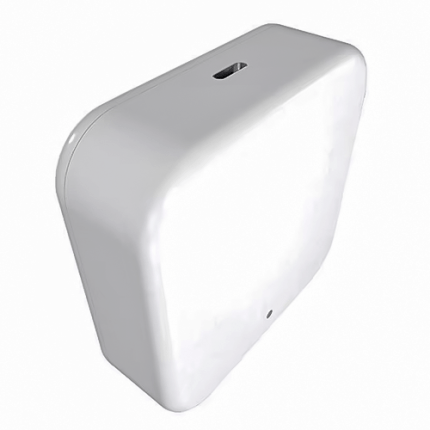Description
Technical Architecture of Biometrics Enabled Logistics 4.0 System
The Biometrics Enabled Logistics 4.0 System integrates cutting-edge biometric authentication and IoT technology to optimize logistics operations. This system consists of biometric devices (fingerprint or facial recognition), IoT sensors for real-time tracking, automated routing algorithms, and cloud or local servers for data processing. Biometric data ensures secure access to logistics infrastructure, while IoT sensors monitor asset conditions (temperature, humidity, location), providing predictive insights. The architecture is built to scale, offering high reliability with secure data transmission across various logistics touchpoints.
Hardware of Biometrics Enabled Logistics 4.0 System
- Biometric Devices: Fingerprint scanners, facial recognition cameras, and retina scanners.
- IoT Sensors: GPS trackers, temperature and humidity sensors, RFID tags for asset tracking.
- Edge Devices: Gateways for real-time data transmission, routers, and microcontrollers for local processing.
- Cloud Servers or Local Servers: Servers for data storage, analysis, and machine learning algorithms.
- Power Supply Units: Backup power systems to ensure continuous operation in remote or critical areas.
Physical Placement Considerations of the Hardware
- Biometric Devices: Should be positioned at key access points such as entry gates, warehouses, or vehicles to ensure secure access control.
- IoT Sensors: Placed on goods, vehicles, and key infrastructure (e.g., shipping containers, forklifts) for continuous monitoring.
- Edge Devices: Placed within each logistics hub or along the transport routes to facilitate local data processing before transmission to central systems.
- Power Supply Units: Positioned to minimize the impact of power failures on critical infrastructure. Consider placing them in central hubs and remote locations.
Hardware Architecture of Biometrics Enabled Logistics 4.0 System
The hardware architecture consists of the following key components:
- Access Control: Biometric scanners and authentication devices for secure entry to warehouses and terminals.
- IoT Monitoring: Environmental sensors (e.g., temperature, humidity), location sensors (e.g., GPS), and asset monitoring units.
- Edge Processing Units: Distributed edge devices for real-time processing and local decision-making.
- Communication Networks: Wi-Fi, 4G/5G, or LPWAN networks for secure data transfer from edge devices to the central system.
- Centralized Servers: Cloud or on-premises data centers to store, analyze, and process the collected data.
Deployment Considerations of Biometrics Enabled Logistics 4.0 System
- Scalability: The system should support both large and small logistics networks. Consider how it can expand from single-site to multi-site deployment.
- Data Security: Ensure secure data transfer and storage, especially with biometric data. Implement strong encryption and compliance with data protection regulations.
- Integration with Existing Systems: Ensure compatibility with legacy systems such as Warehouse Management Systems (WMS) and Transportation Management Systems (TMS).
- Network Infrastructure: Ensure the availability of reliable communication channels (Wi-Fi, 5G) for real-time data transmission.
- Cost: Consider the initial investment, particularly in biometric devices and IoT sensors, and balance this with long-term operational savings.
Relevant Industry Standards and Regulations
- ISO/IEC 27001 – Information Security Management Systems (ISMS)
- ISO 9001 – Quality Management Systems
- GDPR – General Data Protection Regulation (EU)
- FIPS 201 – Federal Information Processing Standard for Biometric Authentication
- ISO 11898 – Controller Area Network (CAN) for industrial control
- IoT Cybersecurity Improvement Act of 2020 – U.S. law for IoT device security
Local Server Version of Biometrics Enabled Logistics 4.0 System
The local server version of the system is designed to offer real-time processing and data storage on-site, ideal for environments with limited or unreliable internet connectivity. The system integrates edge devices with local servers that process biometric and IoT sensor data, ensuring fast decision-making and security. This version supports data encryption, local analytics, and can be upgraded to include cloud connectivity when needed.
Cloud Integration and Data Management
The cloud integration of the Biometrics Enabled Logistics 4.0 System allows for centralized data storage, machine learning model training, and remote monitoring of logistics operations. Cloud platforms such as AWS, Microsoft Azure, or Google Cloud provide the computational power needed for large-scale data processing and analytics. Data management in the cloud includes:
- Real-time Monitoring: Continuous tracking of assets, vehicle conditions, and warehouse operations.
- Predictive Analytics: Machine learning algorithms that predict maintenance needs, route optimization, and demand forecasting.
- Data Security: Cloud-based encryption, access controls, and compliance with international data protection laws.
By leveraging both local processing and cloud integration, GAO Tek ensures that logistics operations are efficient, secure, and scalable.
GAO Case Studies of Biometrics Enabled Logistics 4.0 System
USA Case Studies
- New York City, New York
GAO Tek deployed its Biometrics Enabled Logistics 4.0 System at a large distribution center in New York. Biometric access ensured secure entry, while IoT sensors monitored inventory levels. The system improved operational efficiency, reduced stockouts, and optimized warehouse operations. Learn more - Los Angeles, California
In Los Angeles, GAO Tek helped streamline logistics for a major e-commerce retailer. Biometric authentication secured operator access to shipping and receiving areas, while IoT sensors tracked vehicle locations and cargo conditions. The system enhanced delivery accuracy and reduced operational delays. Explore more - Chicago, Illinois
A logistics provider in Chicago utilized GAO Tek’s Biometrics Enabled Logistics 4.0 System to optimize fleet management. The biometric access system enhanced driver security, and real-time IoT sensors provided predictive maintenance data, minimizing downtime and ensuring smooth transportation operations. Check out Chicago logistics - Houston, Texas
GAO Tek deployed its Biometrics Enabled Logistics 4.0 System in Houston’s port to enhance the security and efficiency of container handling. Biometric devices restricted access to sensitive areas, while IoT sensors monitored container conditions and location, improving overall throughput. More on Houston logistics - San Francisco, California
A prominent logistics company in San Francisco adopted the Biometrics Enabled Logistics 4.0 System to monitor fleet performance. The system integrated biometric access for drivers and operators, while IoT sensors offered insights into vehicle health, leading to proactive maintenance and reduced breakdowns. Explore San Francisco’s innovations - Miami, Florida
GAO Tek implemented its Biometrics Enabled Logistics 4.0 System in Miami’s cargo terminals, utilizing biometric verification for authorized personnel access and IoT sensors for monitoring cargo conditions during transit. This resulted in increased security and fewer damaged goods. Visit Miami Logistics - Dallas, Texas
GAO Tek’s Biometrics Enabled Logistics 4.0 System streamlined inventory management in a large warehouse in Dallas. Biometric access controlled entry to high-value goods, while IoT-driven analytics provided real-time insights into inventory levels, ensuring timely stock replenishment. Learn more about Dallas - Atlanta, Georgia
In Atlanta, GAO Tek helped a logistics company optimize its truck fleet operations. The Biometrics Enabled Logistics 4.0 System incorporated biometric scanning for driver authentication and IoT sensors to monitor fuel consumption and route efficiency, reducing operational costs. Atlanta logistics - Seattle, Washington
GAO Tek deployed its Biometrics Enabled Logistics 4.0 System in Seattle’s distribution center. The system incorporated biometric security for access to storage areas, while IoT sensors tracked inventory and monitored vehicle conditions, enhancing warehouse efficiency and reducing inventory errors. More on Seattle logistics - Denver, Colorado
In Denver, GAO Tek assisted a regional logistics firm in securing its operations with biometric scanning systems for access to high-security areas. IoT sensors enabled predictive maintenance, helping the company reduce breakdowns and improve overall fleet management. Visit Denver - Boston, Massachusetts
GAO Tek’s Biometrics Enabled Logistics 4.0 System was implemented at a warehouse facility in Boston to streamline inventory tracking and improve worker safety. The system enabled biometric access and integrated IoT sensors to monitor environmental conditions, reducing inventory loss and spoilage. Explore Boston logistics - Washington, D.C.
At a federal logistics agency in Washington, D.C., GAO Tek deployed its Biometrics Enabled Logistics 4.0 System to secure access to restricted areas. IoT sensors ensured continuous monitoring of supplies, enabling more accurate forecasting and timely deliveries. Washington logistics - Phoenix, Arizona
GAO Tek helped a large-scale logistics operation in Phoenix improve warehouse efficiency using the Biometrics Enabled Logistics 4.0 System. The biometric authentication system secured operator access, while IoT devices tracked product conditions and movement, reducing inventory discrepancies. Learn more - Philadelphia, Pennsylvania
In Philadelphia, GAO Tek optimized the supply chain operations of a retail giant with its Biometrics Enabled Logistics 4.0 System. The system integrated biometric access for security and IoT sensors for inventory tracking, enabling more efficient goods handling and timely deliveries. Check out Philadelphia - Minneapolis, Minnesota
GAO Tek deployed its Biometrics Enabled Logistics 4.0 System in Minneapolis to improve logistics efficiency at a major warehouse. The system used biometric authentication for workforce access and IoT devices to monitor the real-time location and condition of inventory. Minneapolis logistics.
Canada Case Studies
- Toronto, Ontario
In Toronto, GAO Tek implemented the Biometrics Enabled Logistics 4.0 System for a high-tech manufacturing company. Biometric security ensured authorized access to sensitive areas, while IoT sensors enabled real-time tracking of materials and products, optimizing production workflows. Explore Ontario’s initiatives - Vancouver, British Columbia
A large shipping terminal in Vancouver benefited from GAO Tek’s Biometrics Enabled Logistics 4.0 System. The system combined biometric access for cargo handlers and real-time IoT monitoring of shipping containers, improving cargo tracking and reducing delays caused by equipment failure. Visit Vancouver.
Navigation Menu for IoT
- LORAWAN
- Wi-Fi HaLow
- Z-WAVE
- BLE & RFID
- NB-IOT
- CELLULAR IOT
- GPS IOT
- IOT SENSORS
- EDGE COMPUTING
- IOT SYSTEMS
Our products are in stock and can be shipped anywhere in the continental U.S. or Canada from our local warehouse. For any further information, please fill out this form or email us.
We are actively looking for partners who are like us located in the U.S. and Canada. For more information on partnering with GAO, please visit Partner with GAO Tek Inc. It lists various ways to partner with GAO, such as OEM Partnerships, Technology Integration, Distribution and Reselling Opportunities, Presenting at the Leading Event Tek Summit, Joint R&D Projects, Training and Consulting Services, Industry-Specific Collaborations, Research and Academic Partnerships.



